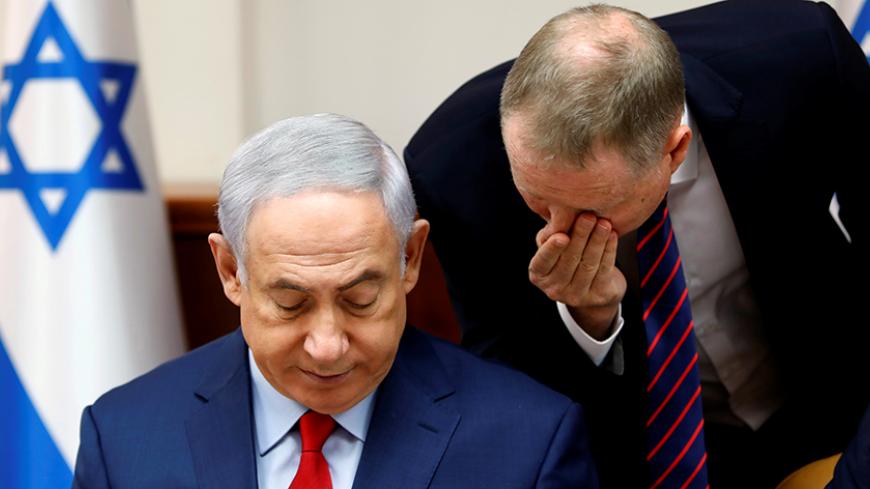Differing scenarios for a post-Netanyahu government
Israeli law would not force an indicted Prime Minister Benjamin Netanyahu to resign, but behind the scenes a war of succession is already underway.

The fact that Ari Harow has turned state witness against Prime Minister Benjamin Netanyahu constitutes a strategic milestone in the investigations against Netanyahu. If, until now, it had been impossible to guess how the investigation would end, now the logical gamble is that at least one bill of indictment will be filed against Netanyahu. Israel’s enforcement authorities do not usually grant generous plea bargains to people who deserve to sit behind bars such as Harow (the prime minister's former chief of staff) except in the pursuit of one goal: to incriminate the person who manipulates the state witness.
As we recall, former Prime Minister Ehud Olmert abandoned his post amid the type of investigations that are now being conducted against Netanyahu. More so, it would seem that Netanyahu is under suspicion of charges that are more serious than those against Olmert, just before the latter resigned. Does all this signal the end of the Netanyahu era? This is very likely to be the case, although the timetable involved is rather obscure. And in Israel, nothing is over until it’s over. We are now only at the beginning of the process, more or less.







